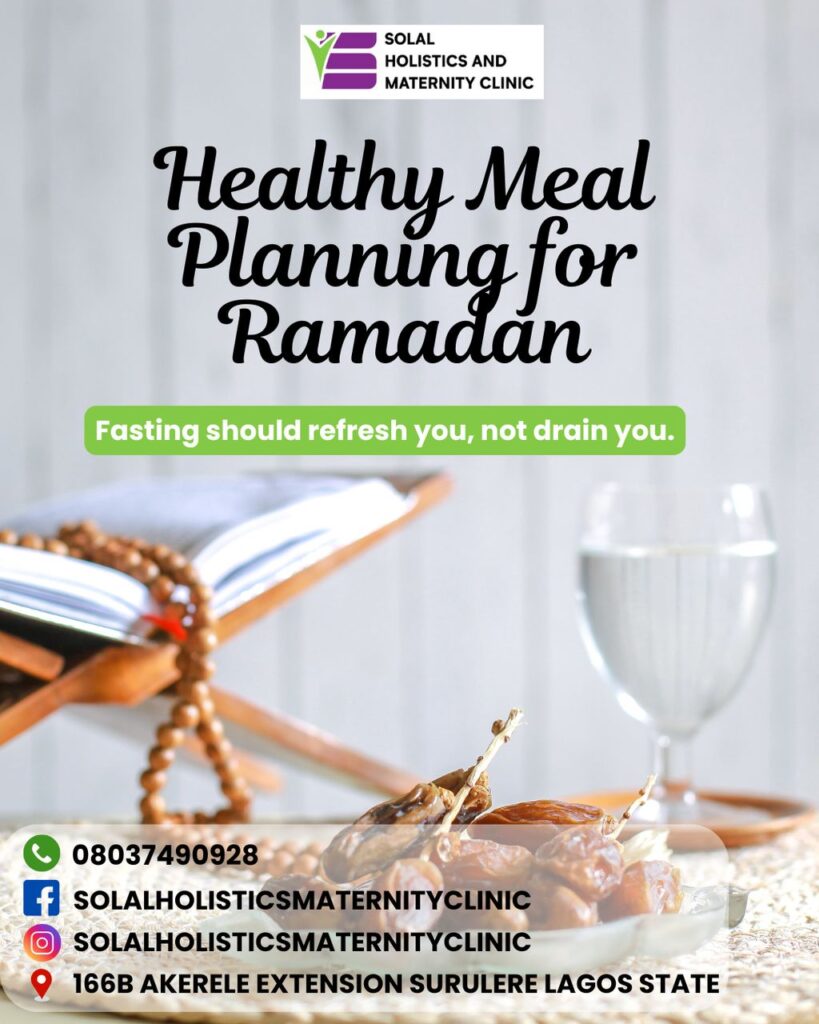Are You Eating to Nourish Your Body or Just Filling Your Stomach?
Many people think fasting means eating anything they crave when it’s time to break their fast. But the wrong food choices can leave you feeling bloated, sluggish, and weak the next day. Fasting is not just about avoiding food—it’s about eating wisely when you can. Your body deserves meals that fuel, heal, and energize you throughout Ramadan.
The Right Way to Plan Your Ramadan Meals
✔ Suhoor: The Pre-Dawn Power Meal
• Choose slow-digesting carbohydrates like oats, brown rice, or whole wheat bread for lasting energy.
• Add healthy proteins like eggs, yogurt, beans, or nuts to keep you full.
• Include healthy fats from avocados, olive oil, or seeds to sustain energy.
• Stay hydrated with water-rich foods like cucumbers, watermelon, and smoothies.
• Avoid sugary cereals, white bread, and heavy fried foods—they cause energy crashes.
✔ Iftar: Breaking Your Fast the Right Way
• Start with water and dates to gently raise blood sugar and rehydrate.
• Eat light foods first—a small soup or fruit before heavier meals helps digestion.
• Fill your plate with lean proteins (chicken, fish, beans) and fiber-rich vegetables.
• Choose whole grains (quinoa, brown rice, whole wheat pasta) instead of refined carbs.
• Avoid deep-fried snacks and excessive sugar, which cause bloating and fatigue.
The Key to a Healthy Ramadan Diet
Your body needs quality food, not just quantity. Instead of stuffing yourself at Iftar and starving until the next day, plan meals that support your energy, digestion, and overall health. Ramadan should leave you feeling lighter, healthier, and spiritually refreshed—not weak and exhausted.
Will you be mindful of what you eat this Ramadan?
